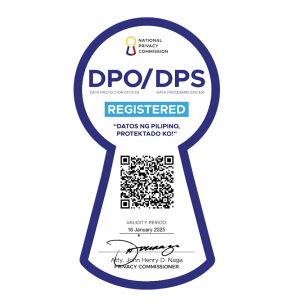Good Governance: The Harbinger of Change
by: Prince Enriquez (MAR216)
The world is plagued by a plethora of issues and difficulties. These range from the presence of inaccessibility to food, education, health, justice, and security. As far back as human civilization was founded, inequalities such as these have long existed and have endured up to the present day More importantly, these issues are amplified for those who are situated at the taiLend of the socioeconomic bracket (i.e., the poor). The poor have the least access to the aforementioned necessities due to reasons as low income, inequality, and marginalization. Which now bggs the question: how can we recover from this? One promment solution comes to mind: good governance.
Food, despite being one of the basic necessities of life, is considered a luxury for millions of people across the globe. According to Action Against Hunger (2021), despite producing more than enough food to feed every person on the planet, as many as 8 1 1 million people worldwide go to bed each night with an empty stomach. In terms of education, according to Humanium (201 8), more than 72 million children who are at the primary education age are not enrolled in school, and 759 million adults are illiterate and do not possess the knowledge necessary to improve their and their children’s living conditions. With regards to health, as stated by the World
Bank and World Health Organization (2017), half of the world’s population lacks access to necessary health services, and 100 million are pushed to povelty because of health expenses. With reference to justice, according to VOX (201 8), more than 30 percent of men falling under the ages 30 to 34 born to the poorest families were either in prison, in jåil, or were former prisoners. This is a clear instance of how the poor are heavily subjected to systenuc oppression and how the law favors the wealthy. Concepts such as “money bail” alone are anti•poor as
only the wealthy are capable of affording the expenses that deter them from beung incarcerated, thus resulting in higher conviction rates among the poor. All of these issues constitute a decrease in human security worldwide, these problems not only pose a challenge for nations in their eradication but also serve as a threat to human life- These statistics give us perspective with regards to the deterioration of the quality of life that people across different nations of the world are currently experiencing. In addition, it also broadens our understanding as to how poverty is directly intertwined with these existing issues. Widespread famine, illiteracy, inaccessibility to medical care, and Injustices limit us from achievmg an equitable and sustainable world.
Good governance serves as one of the key drivers of this much-needed change. The mam reason is due to power; the power to create laws and programs that aim to target these specific issues, and the power to unite a nation. This is why electing leaders that are dedicated to helping the marginalized and oppressed is crucial, as they are capable of sheddmg light and giving voice to the poor. Stan I ee once said that “With great power comes great responsibility,” this quote holds true in every aspect wherein a person is situated in a position of power as
what a person does with that power can either cause great joy or great suffering. The latter manifests itself in different ways, but the greatest contributor to the decline of a nation’s quality of life is corruption. Leaders who are blinded by money turn to a life ofcorrupuon by robbing the country of its wealth and thus depriving its citizens of epportunities for a better life. Not only does corruption breed and further amplify these issues, but it also leads the poor to become poorer. To counter this, it is crucial that as citizens of the nation we must educate ourselves
with regards to how and who we should vote. In addition, we must ålso learn to acknowledge the gravity of our votes as it can either make the difference between life and death for the impoverished.
It is evident that there is much-needed change and reform in the status quo. We, the citizens, are the catalyst ofthat change. Electmg rightful leaders to be seated in a position of power is the key to an equitable and sustainable world. Together we can foster a world where there is a concern for the preservation of human life. Together we can create a world where families will have food on theur table, children are able to access quality education, people have access to medical care, and the law remains impartial regardless of socioeconomic status. Good governance is the key to that change; We are the key to that change.
